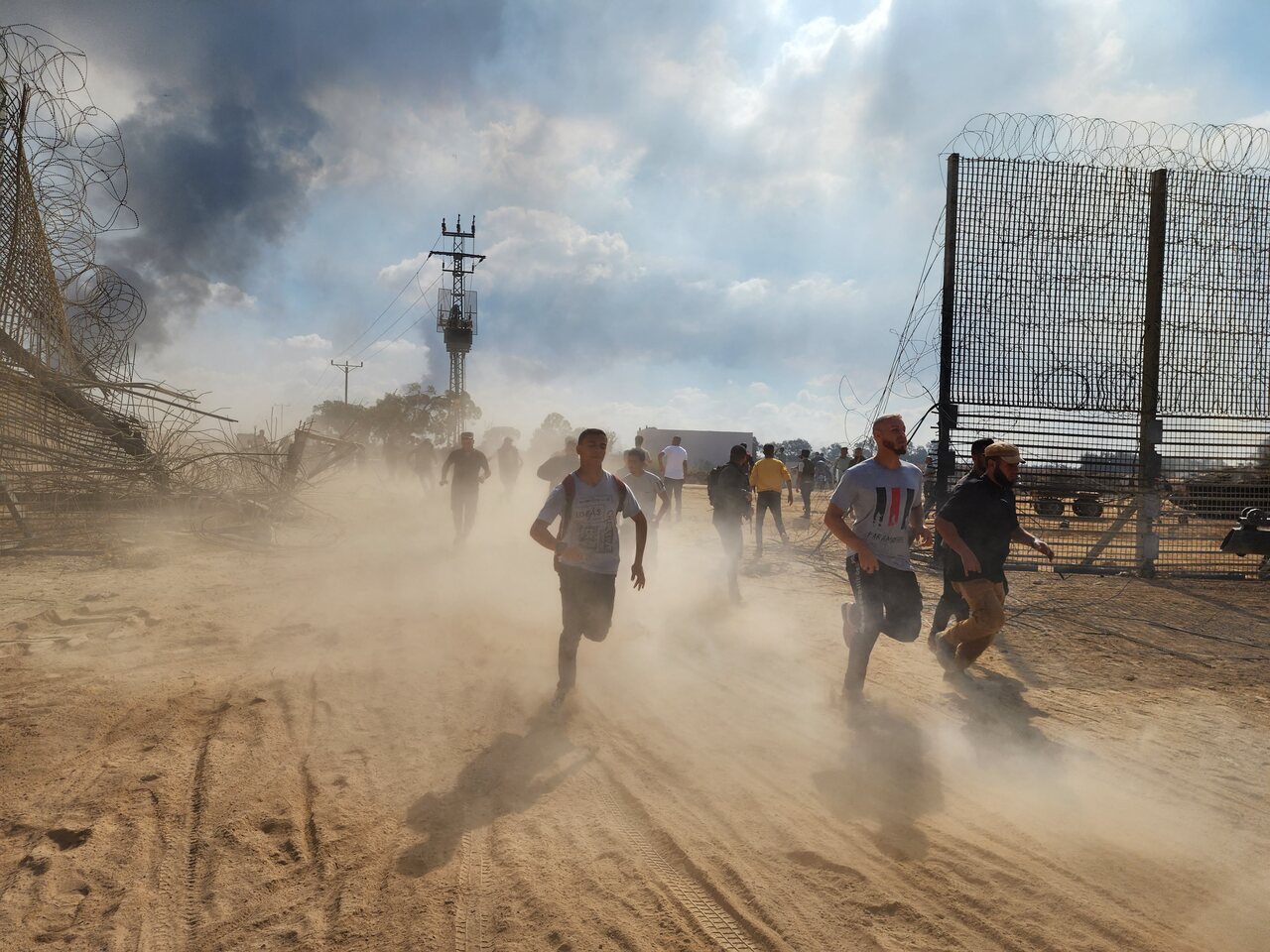Israel-Hamas War Challenges International Legal Norms
An attack by Palestinian Hamas on 7 October, unprecedented in Israel’s history in terms of civilian casualties, has led to an armed response by Israel. The scale of Hamas’ violations of international humanitarian law (IHL) does not absolve Israel of its obligation to comply with it as well. Nevertheless, the international community has been divided in its assessments of retaliatory action. The challenge will be to enforce Israel’s and Hamas’ compliance with international law and, in the longer term, to hold violators accountable.
 RONEN ZVULUN / Reuters / Forum
RONEN ZVULUN / Reuters / Forum
How should the actions of Hamas be assessed?
Hamas is the armed group that has effectively controlled the Gaza Strip since 2007. It is considered a terrorist organisation by Israel, the U.S., the EU, and others. The scale of its attacks makes it possible to classify them and the ongoing fighting not only as terrorist acts but also as armed conflict, to which IHL applies. Hamas’ attack on Israel has been condemned by, among others, the U.S., Canada, the UK, the UN, and, on behalf of the EU, by Josep Borrell, the High Representative for Foreign Affairs and Security Policy. Hamas carried out attacks on prohibited civilian targets (e.g., participants of the Supernova music festival in the Negev desert), the murder of civilians, including children, and the mutilation of corpses (e.g., at the Kfar Aza kibbutz). Also in violation of IHL, it took civilians hostage, used non-combatants as “human shields” prevent attacks by Israel on military targets in Gaza and intimidated civilians. However, the challenge for Israel in its retaliation and holding perpetrators accountable will be to separate Hamas members uninvolved in the fighting and therefore treated as IHL-protected civilians (e.g., administration) from those who committed violations.
How should Israel’s response be assessed under international law?
Israel has the right to self-defence against a targeted attack. However drastic and massive the violation of IHL by Hamas, that does not absolve Israel of its obligation to comply with the same international law. Israeli troops may fight in populated or urban areas, but actions against military targets should be carried out in a way that minimises civilian casualties. The latter are deemed acceptable in proportion to the military gains made. In the case of the Gaza Strip, one of the most densely populated areas in the world, this is amajor challenge. Following Israel’s bombing of Gaza, media reports indicate apparently deliberate attacks on non-military schools, mosques, office buildings, and other objects , which could be in violation of IHL. Israel is being reminded of the need to respect IHL by its allies, including France and the U.S. There are also opinions among the international community and by lawyers that bringing about devastating living conditions in Gaza and mass displacement could potentially qualify as genocide or a crime against humanity.
What might be the effects of the siege on Gaza?
In response to the Hamas attack, Israel also declared a siege of the Gaza Strip starting on 10 October, with the supply of water cut off (although temporarily restored), along with electricity, fuel, medicine, and food. It demands the release of hostages held by Hamas—most of them of Israeli origin—in return for lifting the blockades. This decision has contributed to the rapid deterioration of the humanitarian situation in the Gaza Strip, including access to basic services and the proper functioning of hospitals. The application of such a blockade violates IHL and may be considered a war crime, as the target of the attack is the civilian population, and as collective punishment (for actions that the individual did not commit).
Moreover, Israel initially called on the Palestinian population to leave Gaza, but did not give them the opportunity to do so, shelling areas near the border with Egypt and enacting a full naval blockade. Israel has now mandated the evacuation of Palestinian civilians to the south of the Gaza Strip, which, according to international organisations present in the region, including UN agencies, is infeasible given the short timeframe and the number of people in the affected area.
What are the prospects for bringing perpetrators to justice?
Those who commit serious violations of IHL and other crimes under international law may be punishable with criminal liability before national courts or the International Criminal Court (ICC). Israel has signed but not ratified the ICC Rome Statute, and in 2002 announced that it does not intend to submit to its jurisdiction. However, with Palestine’s accession to the ICC Statute, in practice representatives of both parties (e.g., commanders) can be held accountable to the ICC for at least some of their actions. This includes all crimes committed “in the occupied Palestinian territory, including East Jerusalem”, such as attacks on civilian targets (so both sides could be considered perpetrators).
Another option for trying the perpetrators remains the application of universal jurisdiction by the national courts of third countries. However, this requires the defendants to be on their territory and is used when extradition is refused, so it will largely depend on the respective attitudes of the individual states to which the perpetrators may flee.
What action can be taken by the international community?
A strong response from the UN Security Council, such as a binding resolution based on its powers under Chapter VII of the UN Charter, is unlikely due to the difference in positions taken by its permanent members (e.g., the U.S. supports Israel, while Russia blames it for the escalation). Representatives of the international community, including Egypt and Qatar, have already engaged in mediation, but for now the community’s most important contribution to improving the situation will be coordinating the provision of humanitarian aid to victims on both sides of the conflict. It is the responsibility of Israel and Hamas to allow access to aid for those in need of it, but this is hampered by the blockade of the Gaza Strip and the ongoing fighting.
Another necessary action, but one difficult to implement in practice, is to fight disinformation and document violations of law by all sides of the conflict in order to hold the perpetrators of crimes properly accountable. This could involve the EU and Poland, coordinating with the UN, especially its Human Rights Council, which established a commission of inquiry in May 2021 to investigate violations of international law in the occupied Palestinian territories.





